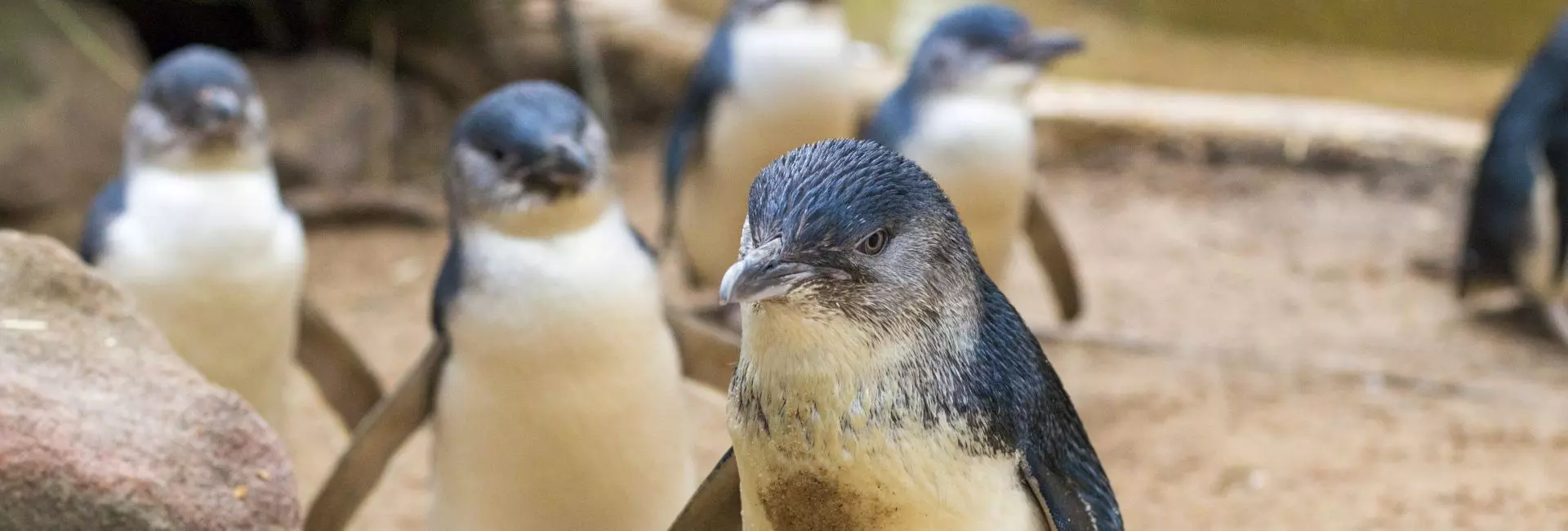Penguins, as we all know, are very cute and very fluffy. That said, it should come as no surprise that they have an entire day dedicated to our waddling friends. This day is the 25th April, and this is an annual celebration. This day was picked as it is roughly the date of the penguin’s annual northward migration.
The Plight Of The Penguin
Antarctic penguins, like many other species of marine life, are under threat from a massive decline in population. Global warming causes the ice to melt, and penguin colonies are being pushed into smaller areas. The decrease of sea ice, and over fishing in the area has led to a shortage of food supplies, leading to more competition to eat. This competition makes it very difficult for chicks to survive.
Scientists also believe the Antarctic Peninsula is warming at a rate that is five times faster than the average for global warming. This leads to warmer winter temperatures, and strong winds cause thinner sea ice, which is where the penguins raise their chicks. Thin sea ice breaks easily, and the rapidly warming temperatures mean ice is breaking too soon in mating season, and so chicks and eggs get blown or washed away before they are able to survive independently from their parents.
Penguins in the Antarctic are not the only ones who have it rough, the African penguin faces similar challenges with competition for food. Back in the 1930's, Africa’s biggest colony consisted of one million penguins and there were more where that came from! Now however, there are just 100,000 penguins across South Africa and Namibia.
Due to declining numbers of fish available for the penguins to eat, they are having to swim further to catch them, leaving adults weakened. Because of this, many have died or abandoned their chicks, ending up in various rehabilitation centres.
How Many Species Of Penguin Are There?
There are 17 species of penguin and they all live in the southern hemisphere of the world. We’ve even listed them for you in alphabetical order.
- The Adelie Penguin – these guys live along the entire coast of the Antarctic coast.
- The African Penguin – as we’ve just discussed, these birdies can be found in South Africa and neighbouring Namibia.
- The Chinstrap Penguin- these adorable fluffballs, their name given to them from a black line in their fur from one side of their face to the other, are located across a range of islands and shores in the Southern Pacific and the Antarctic ocean.
- The Emperor Penguin – these beauties tower over their fellow penguins as the tallest of them all. They are endemic to Antarctica.
- The Erect- Crested Penguins – These lovely lot can be found in New Zealand, and sport some funky, spiky fur which makes them slightly resemble a punk rocker!
- The Fiordland Penguins – these waddlers are a type of crested penguin also found in New Zealand.
- The Galapagos- This fur ball is endemic to the Galapagos Islands and is the only penguin found north of the equator in the wild.
- The Gentoo Penguins- most closely related to the adelies and the chin straps, this wee poppet is also homed on Antarctica.
- The Humboldt Penguin – These guys have set up house in South America.
- The King Penguin- These miniature royals can also be found on Antarctica!
- The Little Penguin – How cute! There is literally a species of penguin called the little, or blue penguin and can be found in New Zealand and Southern Australia.
- The Macaroni Penguin – these funky looking heart throbs can be found on Antarctica.
- The Magellanic Penguin - These socialites travel in large flocks when hunting for food and can also be found around South America and Antarctica.
- The Rockhopper Penguin- These little rockers can be found in a few places; North of Antarctica to Chile, to New Zealand!
- The Royal Penguin – These lovelies can be found on Antarctica!
- The Snares Penguin- It gets its name from its patterns of breeding on snares islands in its home country of New Zealand!
- The Yellow Eyed Penguin- These little rays of sunshine is endemic to New Zealand and is the rarest of all penguin species found there!
How Do Penguins Breed?
Penguins start to mate when they are between 3 to 8 years. As they are birds, they lay eggs. The males begin to attract the females when they start to build their nests to establish possession of a nest site. They do this with a public display of head swinging known as ecstatic. Once paired, the male and female perform mutual ecstatic and bowing to each other.
The eggs in the nest need incubating and throughout most species of penguin, the male and female take turns keeping the eggs warm while the other goes to hunt. When hatched, the chicks are kept warm in a similar way too. So cute!
What Can You Do To Celebrate World Penguin Day?
The biggest help that humans can do for the penguins is educating themselves. The more you know about the plight of the penguin, the more you will understand why they need our help and how best to provide this for them. If you are interested in helping out marine life, check out our marine life projects on our website!

















